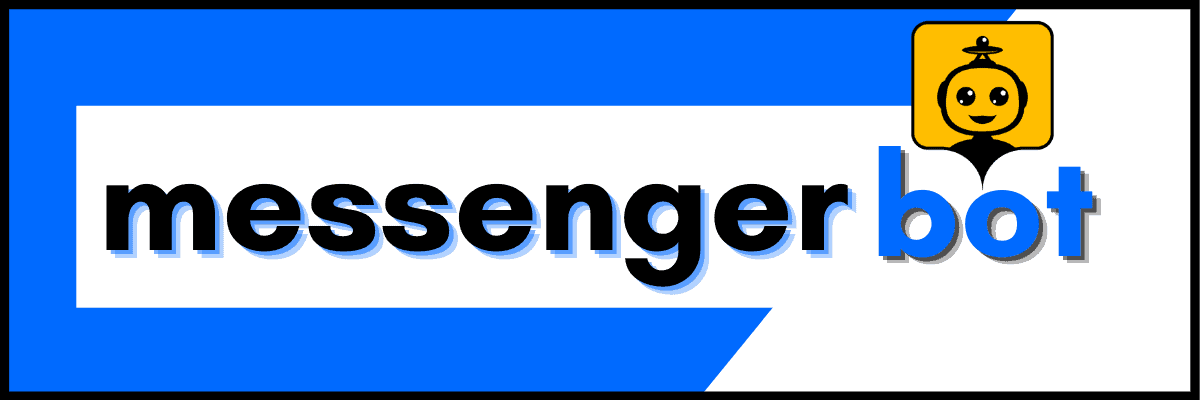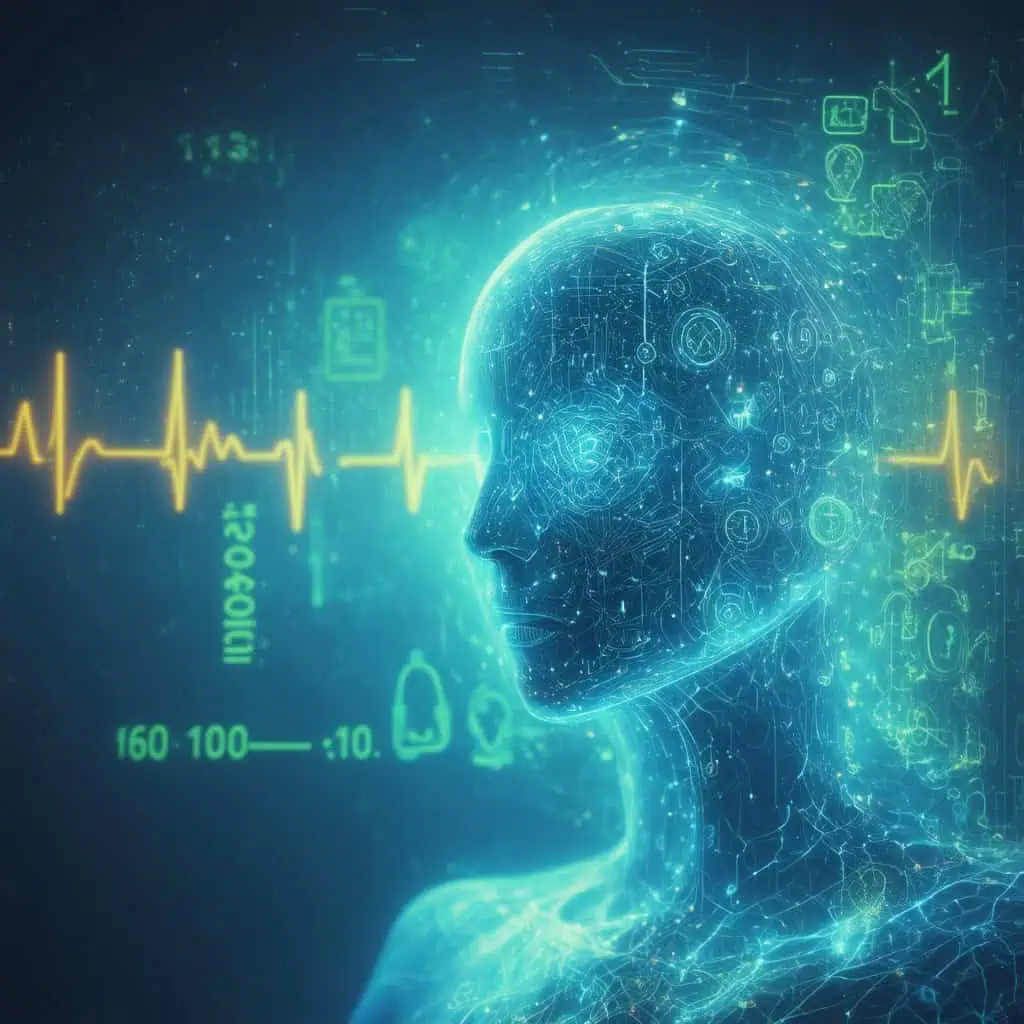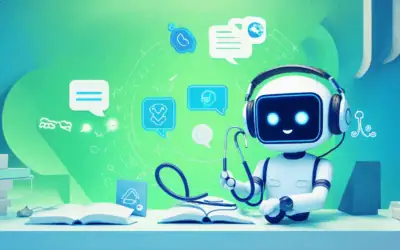Key Takeaways
- 24/7 Availability: AI healthcare chatbots provide round-the-clock access to medical information, enhancing patient support and satisfaction.
- Symptom Assessment: Chatbots utilize algorithms to evaluate symptoms, guiding patients on whether to seek medical attention promptly.
- Appointment Scheduling: Automating appointment bookings with AI chatbots reduces administrative workloads, improving operational efficiency.
- Medication Management: Chatbots remind patients about medication schedules, aiding adherence and management of chronic conditions.
- Personalized Patient Education: AI chatbots deliver tailored health information, empowering patients to make informed decisions about their care.
- Data Collection: Chatbots gather valuable patient data, enabling healthcare providers to enhance service delivery based on patient needs.
- Integration with Messaging Platforms: Seamless integration with popular messaging apps improves user engagement and communication in healthcare settings.
In today’s rapidly evolving healthcare landscape, the artificial intelligence healthcare chatbot system stands out as a transformative tool that enhances communication and reduces risks in medical settings. This article delves into the multifaceted role of AI chatbots in healthcare, exploring how they streamline patient interactions and improve overall care quality. We will examine the benefits of chatbots in healthcare, identify the best medical chatbot applications, and discuss the technology behind medical chat AI. Additionally, we will address potential risks associated with AI chatbots and how to mitigate them. By understanding the common uses of AI in healthcare and the main purposes of AI chatbots, readers will gain valuable insights into the future trends of healthcare chatbots and their impact on patient care.
Overview of AI Chatbots in Healthcare
AI chatbots are revolutionizing healthcare by enhancing patient engagement and streamlining administrative processes. These artificial intelligence healthcare chatbot systems are designed to provide immediate assistance, making healthcare more accessible and efficient. By leveraging chatbot technology in healthcare, organizations can improve patient experiences while reducing operational costs.
Benefits of Chatbots in Healthcare
Here are the primary applications of AI chatbots in healthcare:
- 24/7 Availability: AI chatbots provide round-the-clock access to healthcare information, allowing patients to receive immediate responses to their inquiries without waiting for office hours. This accessibility is crucial for addressing urgent health concerns and improving patient satisfaction.
- Symptom Assessment: Many chatbots are equipped with algorithms that can assess symptoms based on user input. By analyzing responses, these chatbots can guide patients on whether to seek medical attention, thus facilitating timely care. A study published in the Journal of Medical Internet Research highlights the effectiveness of chatbots in preliminary symptom checking.
- Appointment Scheduling: AI chatbots can automate the appointment booking process, reducing administrative burdens on healthcare staff. This feature allows patients to schedule, reschedule, or cancel appointments easily, enhancing overall operational efficiency.
- Medication Management: Chatbots can remind patients to take their medications, provide information about dosages, and alert them to potential side effects. This functionality is particularly beneficial for patients managing chronic conditions, as highlighted by research in the American Journal of Managed Care.
- Patient Education: Chatbots serve as educational tools, delivering personalized health information and resources based on patient queries. This can include information on disease management, preventive care, and wellness tips, fostering informed decision-making.
- Data Collection and Analysis: AI chatbots can gather valuable patient data, which can be analyzed to improve healthcare services and patient outcomes. This data-driven approach allows healthcare providers to tailor their services to meet patient needs more effectively.
- Integration with Messaging Platforms: Some chatbots are integrated with popular messaging platforms, enhancing user experience by allowing patients to interact with healthcare services through familiar interfaces. This integration can streamline communication and improve patient engagement.
In conclusion, AI chatbots are transforming healthcare by providing immediate access to information, automating administrative tasks, and enhancing patient education and engagement. Their ability to operate continuously and analyze patient data positions them as a vital tool in modern healthcare delivery. For further reading, refer to sources such as the World Health Organization and the National Institutes of Health, which discuss the impact of technology on healthcare systems.
Overview of AI Chatbots in Healthcare
The integration of artificial intelligence healthcare chatbot systems is revolutionizing the way healthcare services are delivered. These AI chatbots serve as virtual assistants, providing patients with immediate access to information and support. By utilizing chat artificial intelligence, healthcare chatbots can engage users in meaningful conversations, guiding them through symptom assessments, appointment scheduling, and medication management. This technology not only enhances patient engagement but also streamlines healthcare operations, making it a vital component in modern healthcare systems.
Benefits of Chatbots in Healthcare
The benefits of chatbots in healthcare are extensive, contributing to improved patient outcomes and operational efficiency. Here are some key advantages:
- 24/7 Availability: AI chatbots provide round-the-clock assistance, ensuring that patients can access information and support whenever they need it.
- Cost-Effectiveness: By automating routine inquiries and tasks, healthcare providers can reduce operational costs while maintaining high-quality patient care.
- Personalized Care: Chatbots can tailor interactions based on user data, offering personalized recommendations and support that enhance the patient experience.
- Data Collection: These systems can gather valuable patient data, helping healthcare providers to better understand patient needs and improve service delivery.
For a deeper dive into the comprehensive benefits of chatbots in healthcare, check out our detailed exploration here.
What is the best medical chatbot?
When exploring the landscape of artificial intelligence healthcare chatbot systems, several standout applications emerge as leaders in the field. These AI chatbot apps are designed to enhance patient engagement, streamline communication, and provide valuable health information. Here are some of the top AI chatbot apps for healthcare:
Top AI Chatbot Apps for Healthcare
- ChatGPT: This versatile AI serves as a medical assistant, capable of answering health inquiries and providing information based on clinical guidelines. It utilizes a vast database to ensure accurate responses and can guide users toward appropriate healthcare resources.
- Ada Health: Ada offers personalized health assessments through its AI-driven symptom checker. Users input their symptoms, and the chatbot analyzes the information to provide tailored health advice and connect them with healthcare providers.
- Babylon Health: This platform combines AI technology with telehealth services, allowing users to receive health assessments and consultations with medical professionals. Its chatbot functionality helps users understand their symptoms and suggests next steps.
- HealthTap: HealthTap provides users with access to a network of doctors and health information through its AI chatbot. It can answer medical questions and facilitate virtual consultations, making healthcare more accessible.
These medical chatbots exemplify how AI can transform healthcare by providing immediate access to information and support, ultimately improving patient outcomes.
Features of Effective Healthcare Chatbots
To maximize the benefits of chatbots in healthcare, certain features are essential for effective performance. Here are key functionalities that define successful healthcare chatbots:
- Natural Language Processing (NLP): Effective healthcare chatbots utilize advanced NLP to understand and respond to user queries in a conversational manner, enhancing user experience.
- 24/7 Availability: AI chatbots provide round-the-clock assistance, ensuring that users can access information and support at any time, which is crucial for urgent inquiries.
- Personalization: The ability to tailor responses based on user data and preferences allows chatbots to offer more relevant and engaging interactions.
- Integration with Healthcare Systems: Successful chatbots can integrate with electronic health records (EHR) and other healthcare systems, enabling seamless communication and data sharing.
- Security and Compliance: Ensuring user data privacy and compliance with regulations such as HIPAA is vital for building trust and maintaining confidentiality in healthcare interactions.
By incorporating these features, healthcare chatbots can significantly enhance patient engagement and streamline communication, ultimately leading to better health outcomes.
What are the risks of ChatGPT in healthcare?
The integration of ChatGPT into healthcare systems presents several risks that must be carefully considered to ensure patient safety and ethical standards. Key risks include:
- Bias in AI Decision-Making: ChatGPT may reflect biases present in the training data, leading to unequal treatment recommendations. This can exacerbate existing health disparities, particularly among marginalized populations. A study published in the Journal of the American Medical Association highlights the importance of addressing algorithmic bias to promote equitable healthcare outcomes.
- Data Privacy Concerns: The use of ChatGPT involves processing sensitive patient information, raising concerns about data security and patient confidentiality. Compliance with regulations such as HIPAA (Health Insurance Portability and Accountability Act) is crucial to protect patient data. The American Medical Association emphasizes the need for robust data protection measures when implementing AI technologies in healthcare.
- Over-reliance on AI: Healthcare professionals may become overly reliant on AI-generated recommendations, potentially undermining clinical judgment. A systematic review in the British Medical Journal suggests that while AI can assist in decision-making, it should complement, not replace, human expertise.
- Inaccurate Information: ChatGPT may generate responses that are factually incorrect or misleading, which can have serious implications for patient care. Continuous validation of AI outputs against clinical guidelines is essential to mitigate this risk. The National Institutes of Health recommends ongoing training and evaluation of AI systems to ensure accuracy and reliability.
- Ethical Dilemmas: The deployment of ChatGPT raises ethical questions regarding accountability and transparency in AI-driven healthcare. The World Health Organization calls for clear guidelines on the ethical use of AI in medicine to navigate these challenges effectively.
In conclusion, while ChatGPT has the potential to enhance healthcare delivery, it is imperative to address these risks through careful monitoring, ethical considerations, and adherence to regulatory standards to ensure safe and equitable patient care.
Mitigating Risks in Chatbot Technology
To effectively mitigate the risks associated with AI chatbots in healthcare, several strategies can be employed:
- Implementing Robust Training Protocols: Continuous training of AI models on diverse datasets can help reduce bias and improve the accuracy of recommendations. This ensures that the artificial intelligence chat remains relevant and equitable.
- Enhancing Data Security Measures: Adopting stringent data protection protocols, including encryption and access controls, is essential for safeguarding patient information. Compliance with regulations like HIPAA should be a priority for all healthcare chatbots.
- Encouraging Human Oversight: Establishing a framework where healthcare professionals review AI-generated recommendations can prevent over-reliance on technology and ensure that clinical judgment remains central to patient care.
- Regular Audits and Evaluations: Conducting periodic assessments of AI systems can help identify inaccuracies and biases, allowing for timely adjustments to improve performance and reliability.
- Developing Ethical Guidelines: Collaborating with regulatory bodies to create clear ethical guidelines for AI use in healthcare can help navigate the complexities of accountability and transparency.
By implementing these strategies, healthcare providers can harness the benefits of chatbots in healthcare while minimizing potential risks, ultimately leading to improved patient outcomes and trust in AI technologies.
What is the main purpose of AI chatbots?
The main purpose of AI chatbots, particularly in the healthcare sector, is to enhance patient engagement and streamline communication between healthcare providers and patients. By leveraging an artificial intelligence healthcare chatbot system, these chatbots can provide immediate responses to patient inquiries, assist in appointment scheduling, and deliver personalized health advice. This not only improves accessibility but also fosters a more efficient healthcare experience.
Purpose and Functionality of AI Chatbots
AI chatbots serve multiple functions within healthcare, including:
- 24/7 Availability: AI chatbots are available around the clock, ensuring that patients can receive assistance at any time, which is crucial for urgent health inquiries.
- Personalized Interactions: Utilizing artificial intelligence chat technology, chatbots can tailor responses based on individual patient data, enhancing the user experience.
- Data Collection: Chatbots can gather valuable patient information during interactions, which can be used to improve service delivery and patient care.
- Cost Efficiency: By automating routine tasks, healthcare chatbots reduce the burden on staff, allowing them to focus on more complex patient needs.
Future Trends in AI Chatbot Development
The future of AI chatbots in healthcare looks promising, with several trends emerging:
- Integration with Wearable Technology: AI chatbots will increasingly connect with wearable devices to provide real-time health monitoring and feedback.
- Enhanced Natural Language Processing: As NLP technology advances, chatbots will become more adept at understanding and responding to complex patient queries.
- Increased Use of Multilingual Support: To cater to diverse populations, AI chatbots will incorporate multilingual capabilities, making healthcare more accessible to non-native speakers.
- Focus on Mental Health: AI chatbots will play a significant role in mental health support, providing resources and immediate assistance to individuals in need.
What is the main purpose of AI chatbots?
AI chatbots serve as advanced conversational agents designed to simulate human interaction through text or voice. Their primary purpose is to enhance user experience by providing timely, efficient, and personalized assistance across various platforms. Here are the key functions and applications of AI chatbots:
- Customer Support: AI chatbots are extensively utilized in customer service to handle inquiries, troubleshoot issues, and provide information 24/7. This reduces wait times and improves customer satisfaction. According to a study by Gartner, by 2022, 70% of customer interactions will involve emerging technologies such as chatbots.
- Lead Generation: Businesses deploy chatbots on websites and social media to engage visitors, qualify leads, and guide potential customers through the sales funnel. This proactive approach can significantly increase conversion rates.
- Personalized Recommendations: AI chatbots analyze user behavior and preferences to offer tailored product suggestions, enhancing the shopping experience. This personalization is crucial in e-commerce, where customer engagement directly impacts sales.
- Data Collection and Analysis: Chatbots can gather valuable data from user interactions, providing insights into customer needs and preferences. This data can inform marketing strategies and product development.
- Integration with Messaging Platforms: AI chatbots are integrated into popular messaging apps like Facebook Messenger, allowing businesses to reach customers where they already communicate. This integration facilitates seamless interactions and enhances user engagement.
- Cost Efficiency: By automating routine tasks, chatbots reduce operational costs for businesses. A report from Juniper Research estimates that chatbots will help businesses save over $8 billion annually by 2022.
In summary, the main purpose of AI chatbots is to streamline communication, enhance customer engagement, and provide efficient support across various platforms, ultimately driving business growth and improving user satisfaction.
Purpose and Functionality of AI Chatbots
The functionality of an artificial intelligence healthcare chatbot system extends beyond simple interactions. These chatbots are designed to facilitate various healthcare-related tasks, such as:
- Appointment Scheduling: AI chatbots can assist patients in booking, rescheduling, or canceling appointments, reducing administrative burdens on healthcare staff.
- Symptom Checking: Many healthcare chatbots can guide users through symptom assessment, providing preliminary advice and directing them to appropriate care.
- Medication Reminders: Chatbots can send reminders to patients about medication schedules, ensuring adherence to treatment plans.
- Health Information Dissemination: AI chatbots can provide accurate health information, helping users understand conditions and treatment options.
Future Trends in AI Chatbot Development
As technology evolves, the future of AI chatbots in healthcare looks promising. Key trends include:
- Enhanced Natural Language Processing (NLP): Advances in NLP will enable chatbots to understand and respond to user queries more effectively, improving user experience.
- Integration with Wearable Devices: Future chatbots may connect with wearable health technology, allowing for real-time health monitoring and personalized feedback.
- Increased Personalization: AI chatbots will leverage machine learning to provide increasingly personalized interactions based on user data and preferences.
- Regulatory Compliance: As healthcare regulations evolve, chatbots will need to adapt to ensure compliance with privacy and security standards.
In conclusion, the main purpose of AI chatbots is to enhance healthcare delivery through efficient communication, personalized support, and streamlined processes, paving the way for innovative solutions in patient care.
What is the main purpose of AI chatbots?
The main purpose of AI chatbots is to enhance communication and streamline interactions between users and services. By leveraging artificial intelligence, these chatbots can provide instant responses, assist with inquiries, and facilitate various tasks, making them invaluable in sectors like healthcare. They serve to improve user experience by offering 24/7 availability, personalized interactions, and efficient problem-solving capabilities.
Purpose and Functionality of AI Chatbots
AI chatbots are designed to perform a variety of functions that cater to user needs. In the context of healthcare, their primary purposes include:
- Patient Engagement: AI chatbots engage patients by providing timely information, appointment scheduling, and reminders, which enhances overall patient satisfaction.
- Symptom Checking: Many healthcare chatbots can assess symptoms and provide preliminary advice, guiding users on whether to seek further medical attention.
- Information Dissemination: They deliver accurate health information, helping users understand conditions, treatments, and preventive measures.
- Administrative Support: Chatbots can assist with administrative tasks such as billing inquiries and insurance verification, reducing the workload on healthcare staff.
By integrating these functionalities, AI chatbots significantly improve operational efficiency and patient care in the healthcare sector.
Future Trends in AI Chatbot Development
The future of AI chatbots in healthcare looks promising, with several trends emerging:
- Increased Personalization: Future chatbots will utilize advanced algorithms to offer more personalized interactions based on user data and preferences.
- Enhanced Natural Language Processing (NLP): As NLP technology evolves, chatbots will better understand and respond to complex user queries, making interactions more human-like.
- Integration with Wearable Technology: AI chatbots will increasingly integrate with wearable devices, allowing for real-time health monitoring and proactive health management.
- Regulatory Compliance: As the use of chatbots grows, adherence to healthcare regulations will become paramount, ensuring patient data privacy and security.
These trends indicate a shift towards more sophisticated and user-friendly artificial intelligence healthcare chatbot systems, ultimately leading to improved patient outcomes and operational efficiencies.






